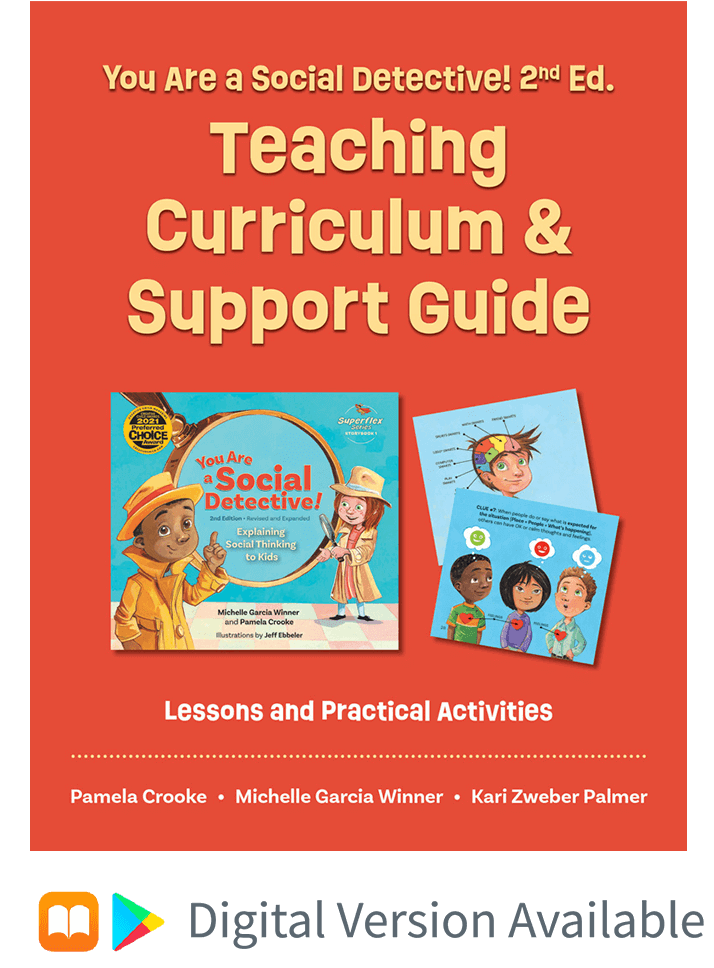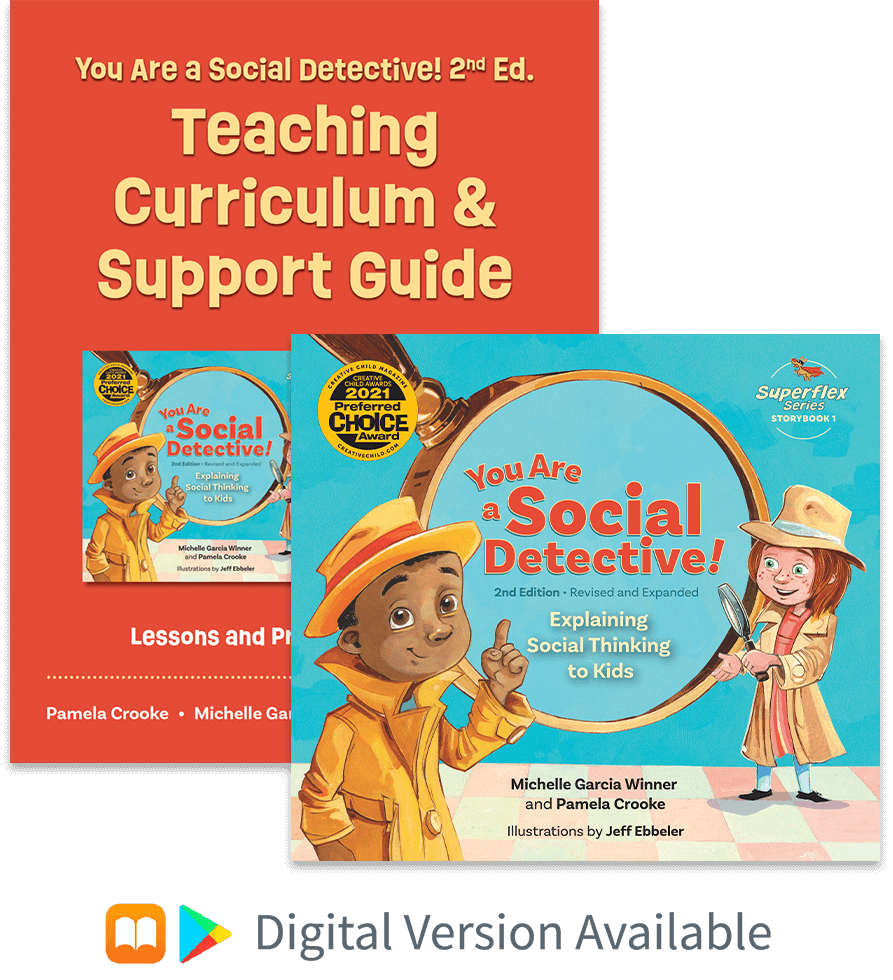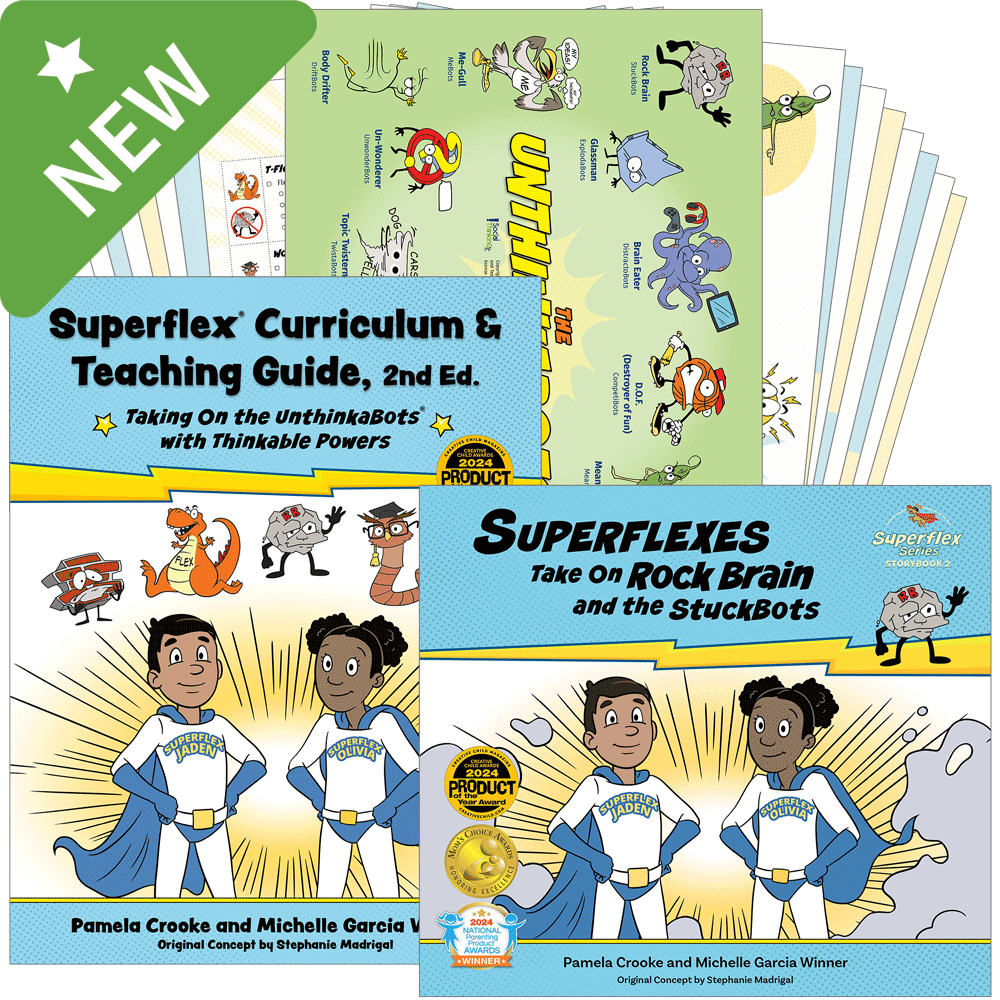
Teaching the Superflex Curriculum Series with Fidelity: A Short Course
Access through July 31, 2024
Detailed Description
Who should attend
Educators, therapists, and caregivers have been asking for a motivating and fun way to teach elementary students social, emotional, and academic concepts. This short course is a tutorial filled with broad suggestions for setting up the environment for learning via a metacognitive superhero adventure. Building on the first 10 lessons about social observation, social awareness in You Are A Social Detective, 2nd ed. (2021) the accompanying teaching curriculum and guide (2022), the 25 Superflex lessons move into building self-regulation, problem solving, and social relationship skills.
The lessons (or Quests) in this curriculum teaching guide bring abstract thinking into concrete strategies. Within the curriculum, teachers, therapists, and counselors guide students through lessons though the lens of a Superflex academy. Quests or lessons then expand into learning about characteristics and struggles that all students (and teachers) can experience at school as expressed through imaginary characters called UnthinkaBots. Each UnthinkaBot has its own unique Bot powers and there are 14 core UnthinkaBots as part of this curriculum. That said, students over the years have created over 500 new UnthinkaBots.
The didactic and interactive lessons foster inquiry-based learning with hands on, multisensory lessons and teaching tools, which can be used in classrooms, clinics, community centers, and homes.
Superflexes Take on the UnthinkaBots with Thinkable Powers (Curriculum and Teaching Guide) is part two in the Superflex series (part one is You are a Social Detective). Each lesson in these 35-lessons has a purpose statement (lesson goal), why the concepts matter, materials guide, and online digital tools (PowerPoint visuals) to support student learning. Lessons include both a step-by-step “what to say” or how to teach, but also encourage educators or parents to use their own style of teaching. In other words, those who crave the structure of a highly structured curriculum will find the print curriculum most useful as if offers ideas of how to introduce each lesson. Others who prefer a free-flowing teaching style can rely more on the online digital PPTs and downloadable visuals to guide their teaching.
Course Content Disclosure: This course focuses on the use of Social Thinking’s books You are a Social Detective! and Superflex® 2nd Edition Kit: Curriculum, Storybook, and Visuals to teach social competencies. Our intention is NOT to market the products, but instead to demonstrate how to teach with fidelity and highlight scope, sequence, and pacing of the curricula in the manner for which they were designed.
Who Should Attend
The Social Thinking Methodology is used by a wide variety of professionals, including speech-language pathologists, special and general education teachers, social workers, counselors, clinical and school psychologists, occupational therapists, behavior specialists, and school administrators, to name a few. It’s also used by family members and caregivers across settings.
Learning Objectives and Agenda
Objectives
Participants will be able to:
- Describe how social attention, observation, and interpretation are the foundations of building social competencies.
- List 4 Dos and DON'T’s of implementing a superhero themed metacognitive curriculum series.
- Explain one lesson or extension lesson that address self-awareness (my strengths and struggles) or self-regulation (ways to work towards my goals).
- Describe two or more imaginary characters in the curriculum series and their powers or proactive strategies for teaching self-awareness or self-regulation.
Agenda
Introduction (15 minutes)
- What is the Curriculum Series?
- For Whom Is This Curriculum Best Suited?
- Emotional, Social, and Academic connections.
- Fidelity Overview
Lesson Quests (75 minute)
- Implementation fidelity related to 10 core social observation lessons related to Social Detective Concepts.
- Quests 1-4 : Introduction to key concepts, setting up the environment, materials, goals, and extension activities.
- Self-reflection and or modifications based on student needs.
- Extension and/or embedding across Tiers.
- Quests 5-8: Overview of core UnthinkaBots, Bot powers and Thinkable strategies.
- Self-reflection and or modifications based on student needs.
- Extension and/or embedding across Tiers.
- Quests 9-18: Secondary UnthinkaBots, Bot powers and Thinkable strategies.
- Self-reflection and or modifications based on student needs.
- Extension and/or embedding across Tiers.
- Quests 19-25: Overview of key components as student begin to increase self-awareness and activation of strategies.
- Embedding across situations and environments.
- Action planning.
Key Take-Aways (30 minutes)
- DOs and DON'Ts
- Fidelity and Implementation Checklist
- Neurodiversity considerations.
Technical requirements to participate in online training
Streaming compatible browser
The best browser for streaming is Google Chrome. If you are unable to use Chrome, please make sure the version of your browser is the latest and greatest.
Download ChromeHigh-speed internet connection
Make sure you are accessing the online course on a device that is connected to high speed internet—that means your download speed is at least 25Mbps.
Run Internet Speed TestOpen firewall ports
If you are accessing the online course from your school or organization, ask your network administrator if there are any firewall ports that need to be opened.
Learn More












